
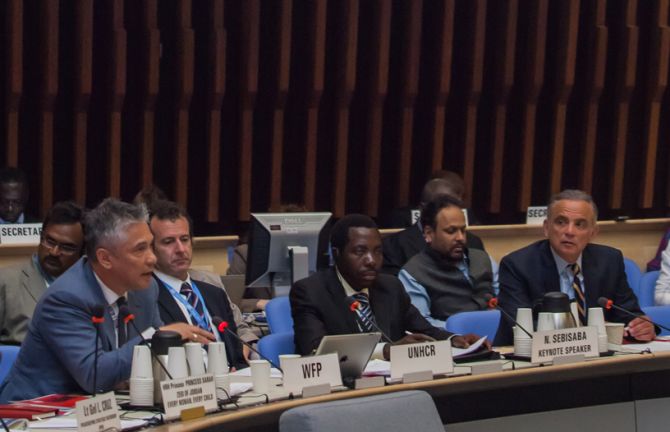
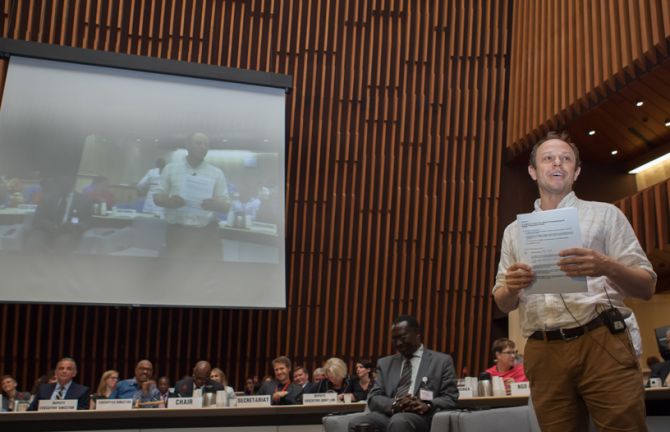
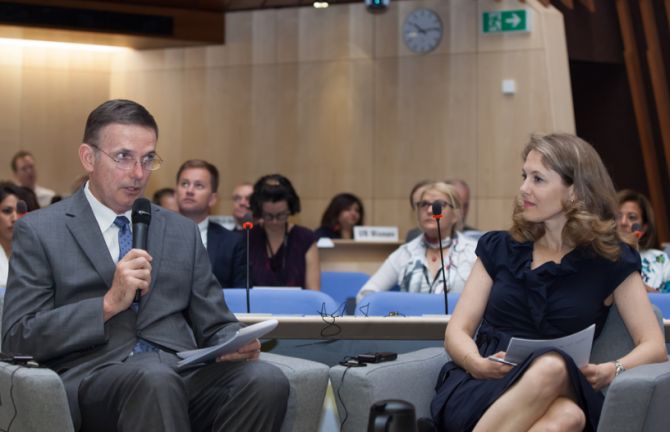
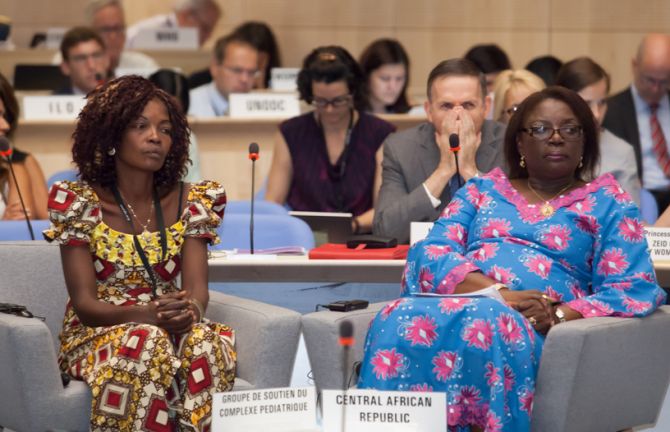
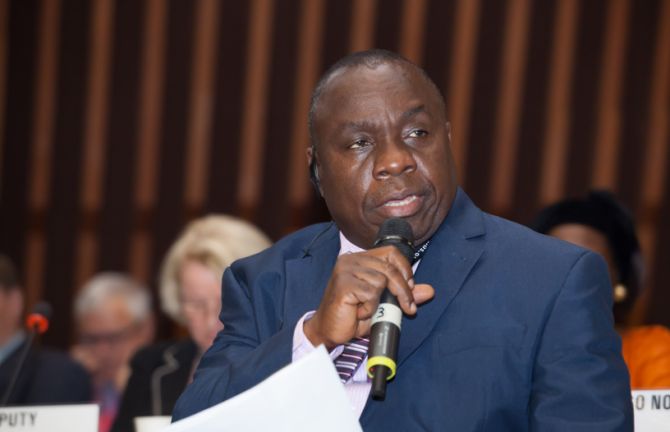
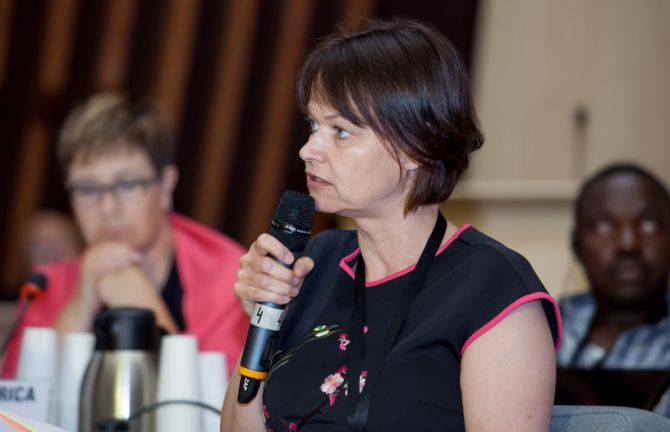
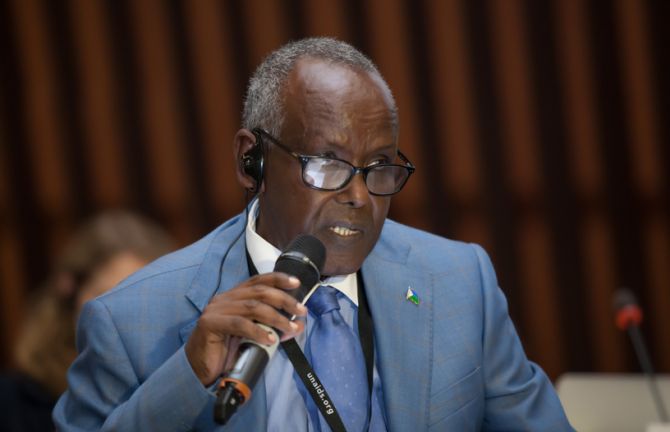
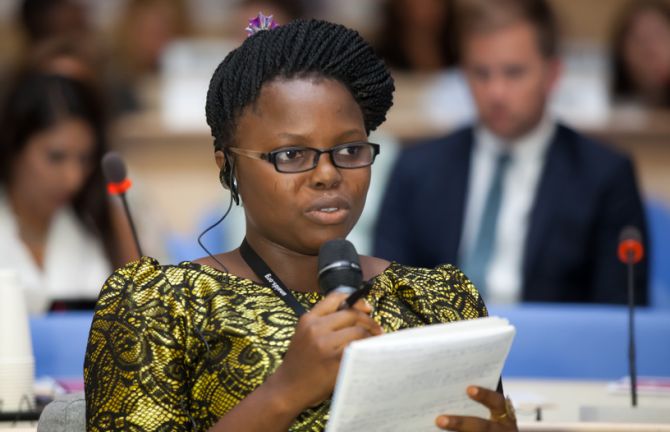
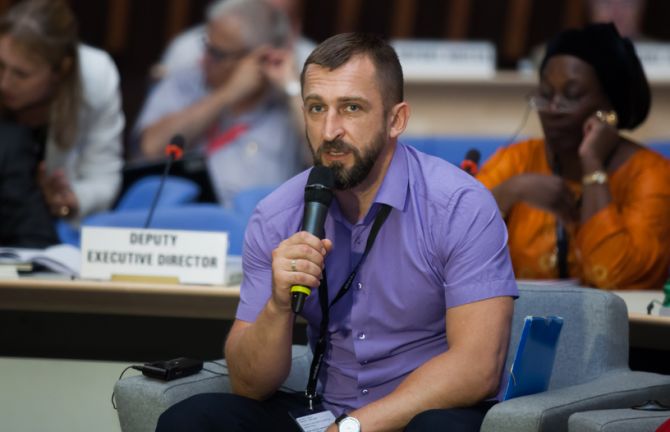
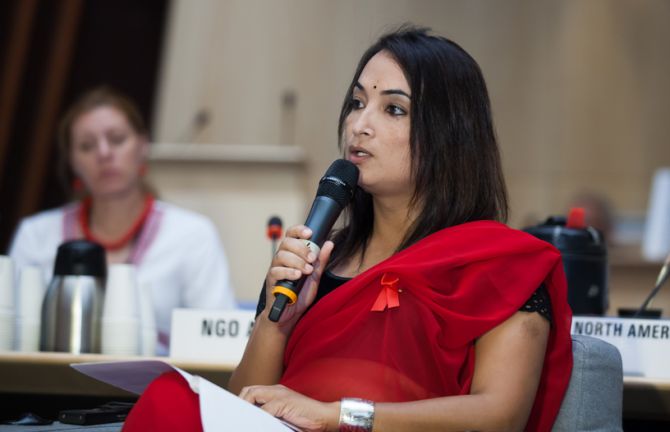
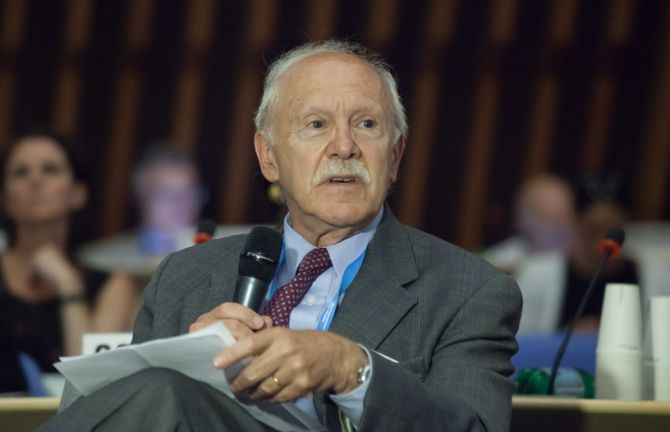
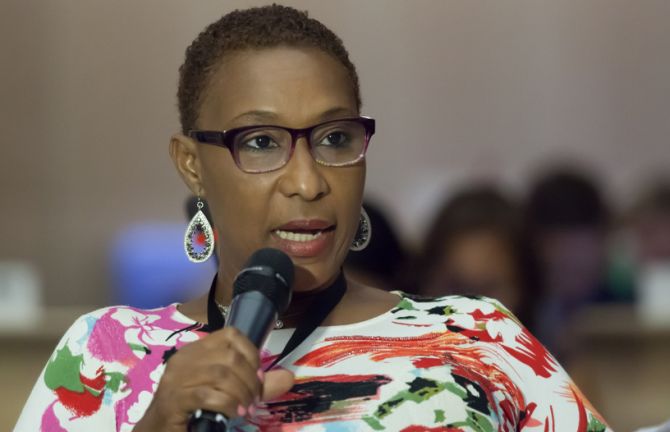
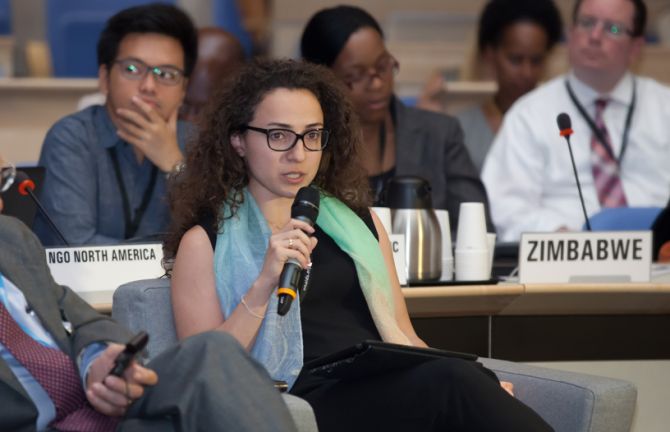
Feature Story
Promoting greater focus on HIV in humanitarian emergencies
06 July 2015
06 July 2015 06 July 2015AIDS strategies and efforts must give greater priority to humanitarian emergencies and the millions of people affected by them, members of the UNAIDS governing body agreed at the thematic segment of the 36th meeting of the UNAIDS Programme Coordinating Board (PCB), which took place in Geneva, Switzerland, on 2 July.
New data presented at the thematic session by the Office of the United Nations High Commissioner for Refugees (UNHCR), the World Food Programme (WFP) and UNAIDS Secretariat estimate that of the 314 million people affected by humanitarian emergencies in 2013, 1.6 million people--or 1 in 22-- are living with HIV, and many thousands more are at risk.
“We are talking about incredible numbers of people and multiple layers of vulnerability. This is too big a scale and impact to ignore. We have to ensure that HIV prevention and treatment services are systematically integrated into emergency responses,” said Mr Michel Sidibé, Executive Director of UNAIDS.
The thematic session contemplated the vast and complex issue of HIV in emergency contexts, including the delivery of health and HIV services in the context of conflict situations, natural disasters, public health emergencies, displacement and migration. On protection issues, vulnerability to HIV due to sexual violence, human rights violations, restrictions, punitive laws and policies were topics of discussion. On resilience, participants talked about the need for community building and preparedness.
Panelists from a wide range of countries including Burundi, Central African Republic, Djibouti, Haiti, Lebanon, Liberia, Nepal, Nigeria, Sierra Leone and Ukraine told of the realities on the ground. They spoke of barriers and opportunities and gave examples of successful government and civil society efforts to address HIV in the wide variety of humanitarian emergency contexts.
In his keynote speech, former refugee Mr Noé Seisaba from Burundi, who founded the Stop SIDA organization that brings key HIV initiatives to refugee camps and settings, called for the community of people living with HIV to be involved in all aspects of planning and implementation. “I faced a lot of discrimination, but I broke my silence on HIV to try to make working on HIV a community issue and to show that we can intervene as refugees because we have a true understanding of the challenges and realities,” he said. “I am happy to see we are all talking about this issue, but I want to see concrete action.”
Many participants echoed that community involvement and empowerment of people living with and most affected by HIV are critical to achieve results for people in such difficult contexts. “If we are going to end the AIDS epidemic by 2030, we have to shine light on root causes of vulnerability in humanitarian settings and increase action to promote respect for rights and basic humanitarian dignity,” said Mr George Okoth-Obbo, Assistant High Commissioner for Operations at UNHCR.
Cross-regional strategies were encouraged to enable maximum impact and coverage of people. The challenge of sexual violence in emergency settings and gender inequalities was highlighted as a fundamental issue to be given greater focus, action and investment.



